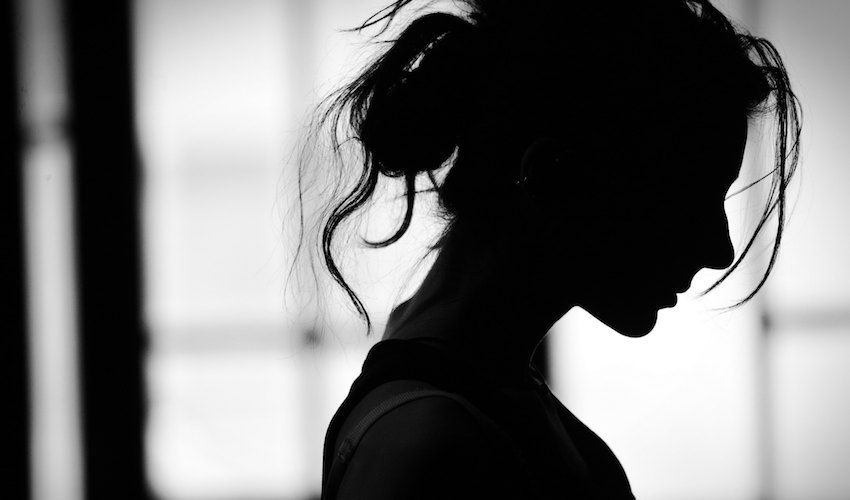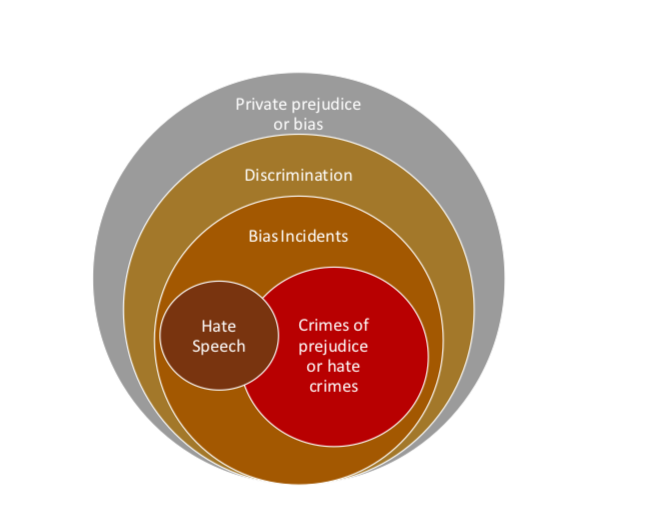


Misogyny will not be criminalised under new proposals to legislate against hate crime, it has emerged.
Being a woman has not been included as a protected characteristic by the draft law as the legislation centres on hostility towards those of different races, beliefs, sexualities and abilities.
This comes as the local authorities mark ‘National Hate Crime Awareness Week,’ and islanders are being canvassed for their views on the new draft law.
Discriminatory behaviour, hate speech and ‘crimes of prejudice’ against people with disabilities is a particular focus of the proposed legislation which has been in the works for many years.

Pictured: The legislation criminalises hate speech.
According to the consultation document, the law aims to protect people who are “minorities in terms of numbers of individuals, and that they have historically been subject to adverse treatment on the grounds of the characteristic.”
The categories of characteristics include race (colour, nationality, national origins, ethnic origins), sexual orientation, gender reassignment (people who identify as a gender different to the one they were assigned at birth) and disability.
However, a person’s sex (being a man, woman, or someone with intersex status), pregnancy and maternity and age have not been included as “protected characteristics.”
The document acknowledges that not including being a woman as “the most contentious omission,” but goes onto explain that it plays into a wider debate across “a number of jurisdictions.”

Pictured: There are concerns that making misogyny a hate crime would prove problematic for sentencing courts.
The reason for the omission, the document explains, that whilst “there is a recognition in modern society that there has been an imbalance in the distribution of economic, social and political power that has left women at a disadvantage in some areas,” there are concerns that serious domestic or sexual abuse may be classified as crimes of prejudice if being a woman becomes a protected characteristic.
It reasons: “Unless specifically exempted, this could have the effect of classifying incidences of domestic abuse and sexual assaults as crimes of prejudice if they took place between people of different sexes, and this position is supported by some commentators.”
This comes as the UK Law Commission prepares to carry out a large-scale review into hate crime. The review was agreed as part of MP Stella Creasy’s bids to make misogyny incorporated into hate crime legislation.
The Labour MP attempted to amend her ‘upskirting’ bill – which successfully made it a criminal offence to photograph someone under their clothes without their knowledge or consent – by including misogyny as an aggravating factor.
This means that courts would have been able to consider a prejudice against women as a motivator for this kind of offence.
Ms Creasy agreed to withdraw this amendment in exchange for the Law Commission review which will investigate the implications of sex characteristics being includes in hate crime legislation.

Pictured: Stella Creasy MP is trying to make misogyny a hate crime (Press Association).
The consultation document suggests that the outcome of this review may or may not influence the draft legislation in its current form.
It states: “Given that the UK has a considerably greater research capacity than Jersey, together with a population large enough to offer better sampling sizes, it would seem premature for the position in local legislation to be finalised before the arguments brought to light by the Law Commission are available. However, there is no commitment to take the same path as the UK, and responses on the matter of protected characteristics would be extremely valuable.”
In relation to omitting pregnancy and maternity, the consultation document says: “There is no body of evidence to suggest that pregnancy or maternity prejudice underpins any notable volume of crime, academic analysis of the subject is thin and a media review suggests that while there is reporting of crimes of prejudice against pregnant women or mothers, their maternal status is not the grounds for attack but makes the crime more repugnant and noteworthy, thus worth reporting on."
Equally, age is being left off the list. The document states: “The question must be whether any additional burden of crime is suffered by the aged specifically because of prejudice against them, rather than a perception that they are an easy target.”
Comments
Comments on this story express the views of the commentator only, not Bailiwick Publishing. We are unable to guarantee the accuracy of any of those comments.